
Sri Hari-bhakti-vilasa (Volume Three): Vilasas 11-13 ( (With Transliteration and English Translation))
Book Specification
| Item Code: | IDG274 |
| Author: | Purnaprajna Dasa Bhumipati Dasa Purnaprajna Dasa |
| Publisher: | Ras Bihari Lal and Sons |
| Language: | (With Transliteration and English Translation) |
| Edition: | 2006 |
| ISBN: | 8187812958 |
| Pages: | 500 |
| Cover: | Hardcover |
| Other Details | 9" X 6" |
| Weight | 950 gm |
Book Description
About the Book:
There are two kinds of Vedic literature-fruitive and transcendental. Those who are inclined toward the fruitive division naturally have no interest in transcendental literature. Human beings mould their lives, actions, concepts and conclusions according to their own taste. For this reason, the smartas also have more faith in the literature of their choice. Because they are not qualified to study transcendental literature, they lack faith in them. That is the arrangement of the creator. There is no doubt that there is a confidential purpose behind this. The purpose is that if one remains fixed in his own position, according to his qualifications, he will gradually make advancement. As soon one gives up the duties pertaining to his position, he becomes degraded.
When human beings are engaged in fruitive activities, they are called karmis, and when they are engaged in devotional service, they are called devotees. As long as one is attached to the performance of fruitive activities, he should follow the path of smarta because it will be beneficial for him. If he somehow transcends the platform of fruitive activities and enters onto the platform of devotional service, he will naturally develop a taste for spiritual life. That is why the creator has made two sets of literature-fruitive and transcendental.
Back of Book:
In order to arrange for the observance of vows and rituals for those who desire to obtain the ultimate goal of life, krsna-prema, the most merciful Lord Gaurahari, who is the deliverer of the people of Kali-yuga, instructed His associate, Srila Sanatana Gosvami, to compose the Vaisnava smrti, Sri Hari-bhakti-vilasa.
The responsibility for accumulating evidence for the subject matters specified by Sri Caitanya Mahaprabhu was entrusted to Sri Gopala Bhatta Gosvami. That is why, in each chapter, Srila Sanatana Gosvami has mentioned the name of Gopala Bhatta Gosvami. Srila Sanatana Gosvami has also written a commentary called Digdarsini for the easy and proper understanding of this literature.
| INTRODUCTION | IX | |
| ELEVENTH VILASA | 1 | |
| The evening duties | 1 | |
| The duties at nigh | 9 | |
| The prayer | 9 | |
| The procedure for offering the fruit of all of one's activities | 10 | |
| The way to attain the benefit of one's worship | 12 | |
| Attaining the benefit of worship | 13 | |
| The glories of watching the Lord's puja | 14 | |
| Having darsana of the Deity of the Supreme Lord is eternal | 15 | |
| The glories of giving donations for the Lord's worship | 16 | |
| The articles used for worship | 28 | |
| The proper utilization of the ingredients | 33 | |
| The process of putting the Lord to rest | 35 | |
| The glories of worshiping the Supreme Lord | 41 | |
| Worship of the Lord is eternal | 64 | |
| The glories of the Lord's holy names | 67 | |
| Various names of the Lord are to be chanted to receive various results | 67 | |
| To invoke auspiciousness for special occasions | 68 | |
| It uproots all sinful reactions | 78 | |
| The glories of chanting the holy name of the Lord | 78 | |
| Especially in this age of Kali | 86 | |
| It cures all disease | 89 | |
| It checks the influence of Kali | 93 | |
| It delivers one from a hellish condition of life | 94 | |
| It destroys the very seed of sinful activities | 95 | |
| It nullifies all kinds of offenses | 96 | |
| It awards perfection in all activities | 96 | |
| It is the essence of the Vedas | 97 | |
| It is more sanctified than all of the holy places | 98 | |
| It is more beneficial than performing all kinds of pious activities | 99 | |
| It awards the ultimate goal of life | 101 | |
| Especially in the age of Kali | 102 | |
| It is omnipotent | 103 | |
| It is pleasing to everyone | 104 | |
| It makes the chanter worshipable by all | 105 | |
| It awards the ultimate goal of life | 106 | |
| It is always the object of worship | 106 | |
| It awards liberation | 108 | |
| It delivers one to Vaikuntha | 113 | |
| Especially in this age of Kali | 116 | |
| It pleases the Supreme Lord | 117 | |
| it automatically awards one the supreme objective of life | 119 | |
| Especially in this age of Kali | 12 | |
| The glories of chanting the holy name | 126 | |
| The glories of remembering the holy names of the Lord | 127 | |
| This prayer of Devahuti is found in the Padma Purana | 128 | |
| The glories of the Lord's holy names | 129 | |
| The unparalleled glories of the incarnation of Krsna | 131 | |
| The glories of the holy name, Krsna, in particular | 132 | |
| The chanting of the Lord's holy names is eternal | 137 | |
| The fate of one who thinks the glories of the holy names are exaggerated | 139 | |
| To counteract an offense | 142 | |
| Devotional service is very rarely achieved | 143 | |
| The glories of devotional service | 148 | |
| If a devotee accidentally commits a sin, he need not undergo atonement | 149 | |
| It destroys one's attachment for karma | 151 | |
| It pleases the mind | 152 | |
| It is the supreme occupation | 153 | |
| It uproots the false ego | 154 | |
| It is the best of all paths | 154 | |
| It awards all objectives of life | 156 | |
| It is superior to liberation | 158 | |
| It controls the Supreme Lord | 166 | |
| Devotional service is the ultimate goal of life | 168 | |
| Devotional service to the Supreme Lord is eternal | 169 | |
| The symptoms of devotional service | 171 | |
| The symptoms in general | 171 | |
| The symptoms of loving devotional service | 176 | |
| The symptoms of love of God | 177 | |
| The process of surrender | 181 | |
| Surrender is eternal | 182 | |
| The glories of surrender | 182 | |
| The symptoms of surrender | 189 | |
| The codes of conduct | 191 | |
| TWELFTH VILASA | 221 | |
| The duties during the fortnight | 221 | |
| The vow of Ekadasi is eternal | 221 | |
| It pleases the Supreme Lord | 222 | |
| It is a scriptural injunction | 223 | |
| Eating is prohibited on Ekadasi | 223 | |
| By not following this procedure on incurs sin | 225 | |
| The faults described regarding widows | 229 | |
| the following of this vow in both fortnights is eternal | 230 | |
| It is to be observed even during the period of mourning | 238 | |
| Performance of the sraddha ceremony is prohibited on fasting days | 240 | |
| The qualified candidate for observing Ekadasi | 241 | |
| The particular regulations regarding night | 247 | |
| The glories of Ekadasi | 250 | |
| The ascertainment of fasting days | 275 | |
| The fault of fasting on a mixed Ekadasi | 277 | |
| The symptoms of mixed Ekadasi | 306 | |
| Ekadasi that is pierced at the time of sunrise should be rejected | 307 | |
| The answer | 310 | |
| The fault of following such a vow | 311 | |
| The symptoms of a Vaisnava | 312 | |
| The period of arunodaya | 314 | |
| The fault of fasting on an Ekadasi polluted by Dasami during arunodaya | 315 | |
| What is to be done if Dasami remains until midnight | 317 | |
| Even pure Ekadasis can be rejected in special circumstances | 319 | |
| The process of observing the vow of vanjuli-dvadasi | 322 | |
| The trisprsa-maha-dvadasi | 324 | |
| The Paksavarddhini-maha-dvadasi | 327 | |
| Answers to some doubts | 329 | |
| The removal of doubts | 335 | |
| THIRTEENTH VILASA | 339 | |
| Duties to be performed the day before Ekadasi | 339 | |
| Mantras for accepting a vow | 339 | |
| Special rules for festivals | 339 | |
| The ingredients for havisya | 341 | |
| Other rules to be followed in this regard | 342 | |
| The glories of brushing one's teeth | 344 | |
| The symptoms of ekabhakta | 344 | |
| The duties to be performed on a fast day | 345 | |
| Mantras for making a formal vow | 345 | |
| The process for observing a vow | 345 | |
| Things that should be avoided on a fast day | 348 | |
| Sins committed against fasting | 348 | |
| Atonement for committing such a sin | 349 | |
| The glories of fasting | 350 | |
| Other rules to be followed on a fast day | 352 | |
| Activities that break the vow of celibacy | 352 | |
| The process of worship on a fast day | 353 | |
| Activities that break the vow of celibacy | 354 | |
| The process of worship on a fast day | 356 | |
| The procedure to be observed while remaining awake all night | 356 | |
| One should not discourage others from singing and dancing | 357 | |
| The need for observing this procedure | 358 | |
| The process for staying up all night | 364 | |
| The glories of the vow to remain awake at night | 382 | |
| The glories of remaining awake during the night of Ekadasi | 384 | |
| The fault of not remaining awake | 399 | |
| The duties to be performed on the day of breaking the fast | 399 | |
| The mantras for completing the vow | 400 | |
| Evidence that it is forbidden to bathe the Supreme Lord on Dvadasi | 401 | |
| While breaking the fast, Dvadasi must be present | 404 | |
| What should be done if the length of Dvadasi is insufficient | 405 | |
| Solution for such a problem | 407 | |
| A fast should not be broken if Ekadasi has not ended | 407 | |
| The symptoms of the eight maha-dvadasis | 409 | |
| Unmilani Maha-dvadasi | 410 | |
| Vyanjuli Maha-dvadasi | 411 | |
| Trisprsa Maha-dvadasi | 411 | |
| Paksavardhini Maha-dvadasi | 414 | |
| Observing the eight Maha-dvadasis is eternal | 417 | |
| Ascertaining the time for breaking one's fast | 417 | |
| The glories of following the Maha-dvadasi | 418 | |
| The subject of Unmilani Maha-dvadasi | 433 | |
| Discussion of Vyanjuli Maha-dvadasi | 443 | |
| Discussion of Trisprsa Maha-dvadasi | 459 | |
| Discussion of Paksavardhini Maha-dvadasi | 462 | |
| The arghya mantra | 464 | |
| Discussion of Jaya Maha-dvadasi | 465 | |
| Discussion of Vijaya Maha-dvadasi | 466 | |
| The process of following Vijaya Maha-dvadasi | 466 | |
| The mantra for making a formal vow | 468 | |
| The mantra for offering arghya | 469 | |
| Offering prayers to the Lord | 469 | |
| Discussion of Jayanti Maha-dvadasi | 471 | |
| The process for following this vow | 471 | |
| The mantra for making a formal vow | 472 | |
| Greeting the Lord during this vow | 473 | |
| First, worship mother Devaki | 474 | |
| The mantra for worshiping the Lord | 474 | |
| The mantra for offering arghya | 475 | |
| The glories of remaining awake that night | 476 | |
| Discussion of Papanasini Maha-dvadasi | 477 | |
| The process for observing this vow | 478 | |
| The mantras for making a formal vow | 478 | |
| worship of His limbs | 479 | |
| The mantra for offering arghya | 481 | |
| The prayers | 481 | |
| Worship of the amalaki tree | 482 | |
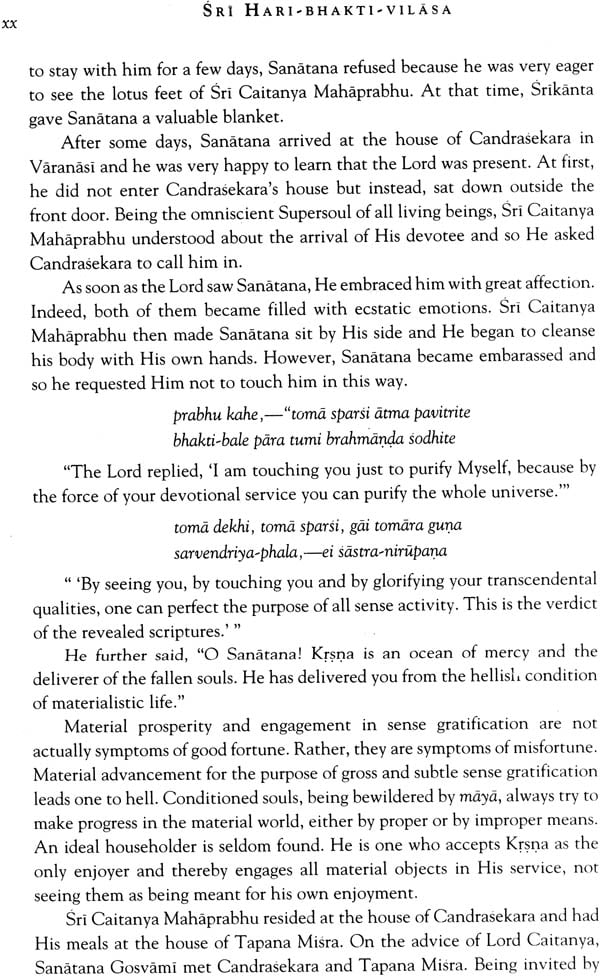
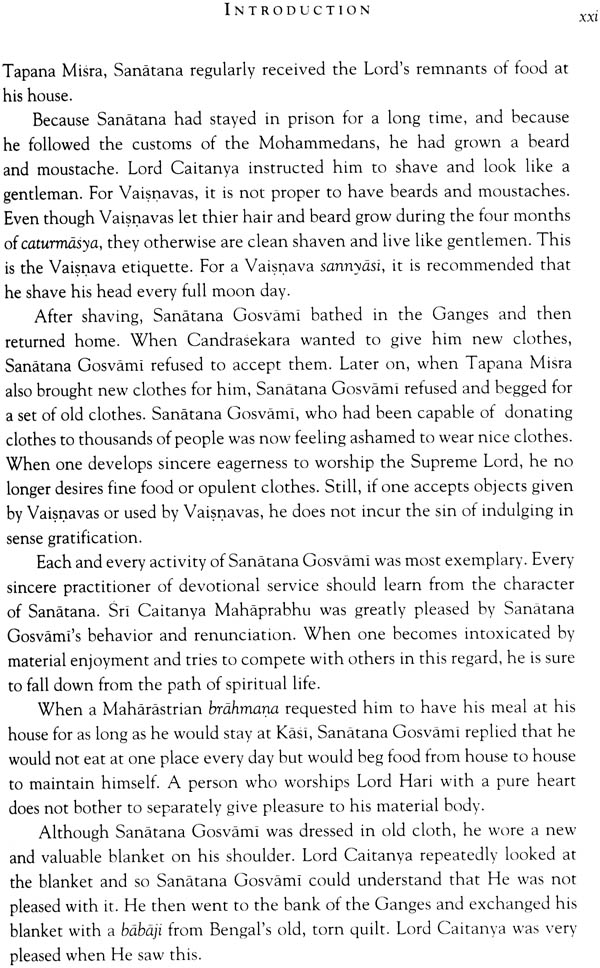
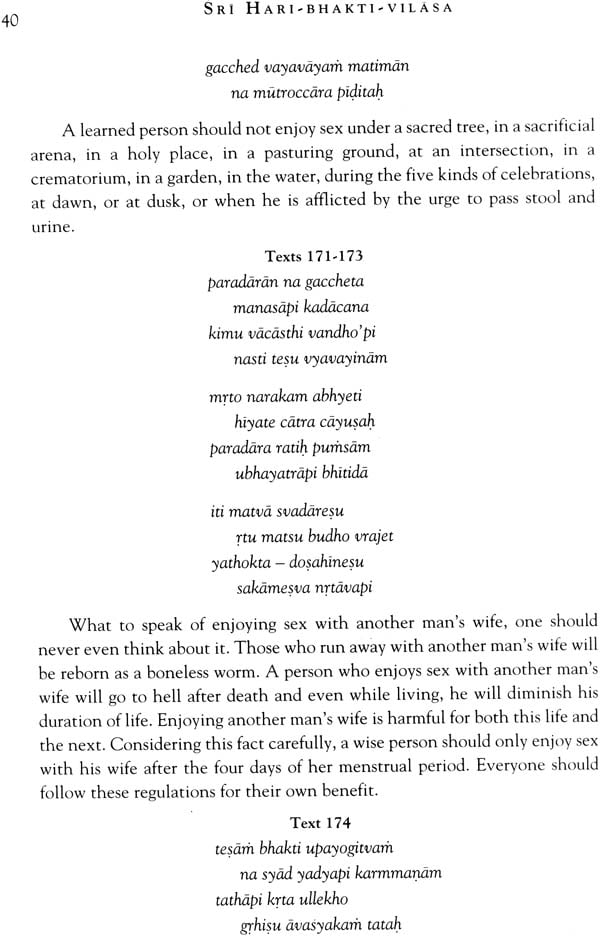
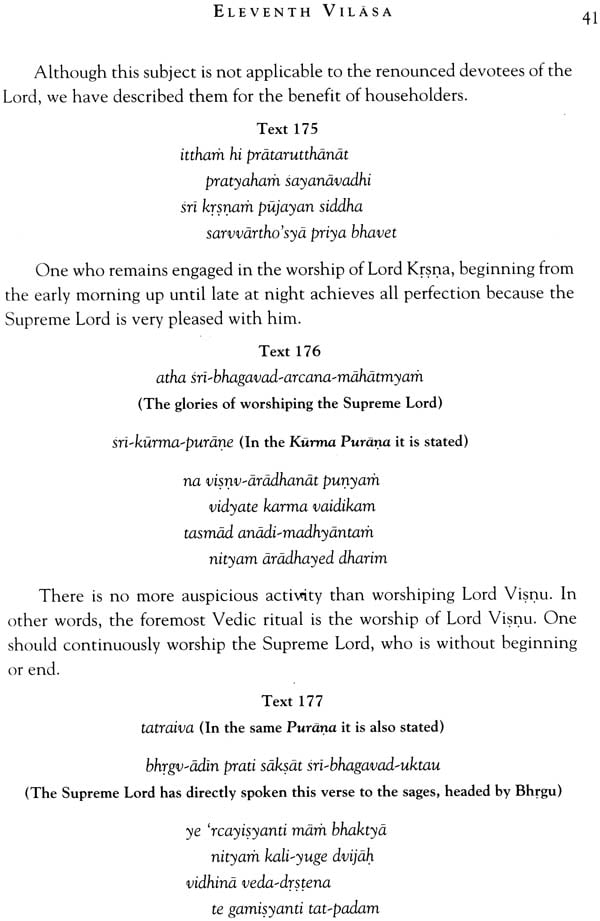
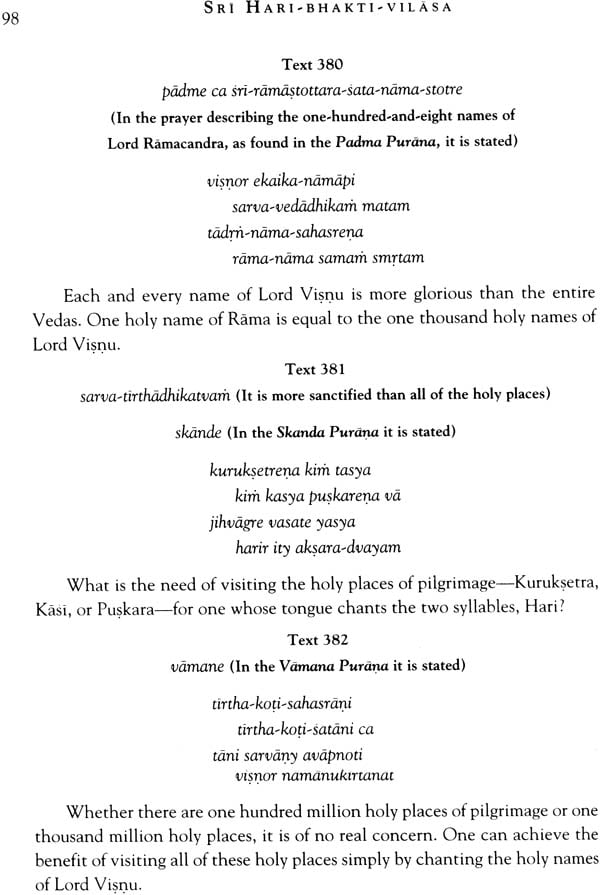
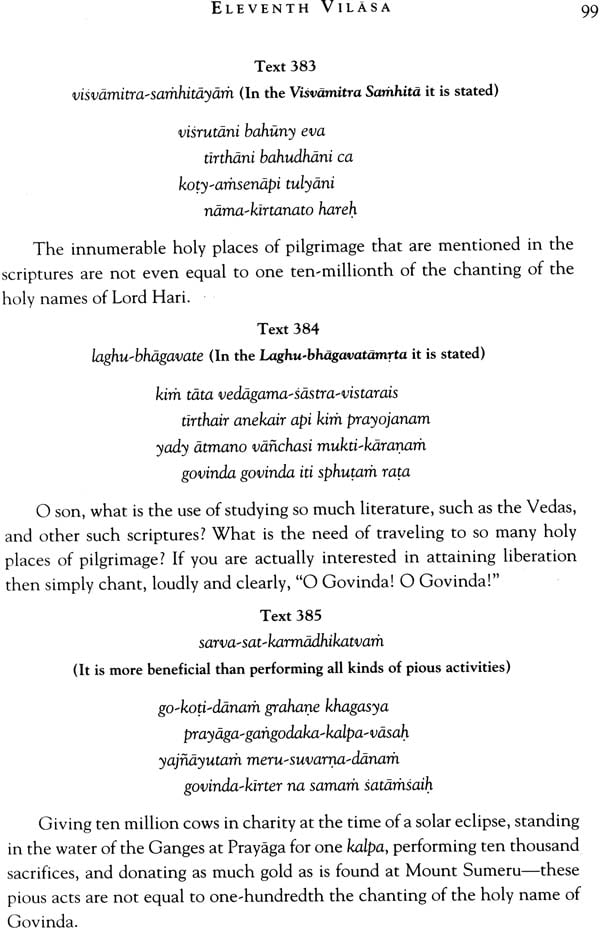
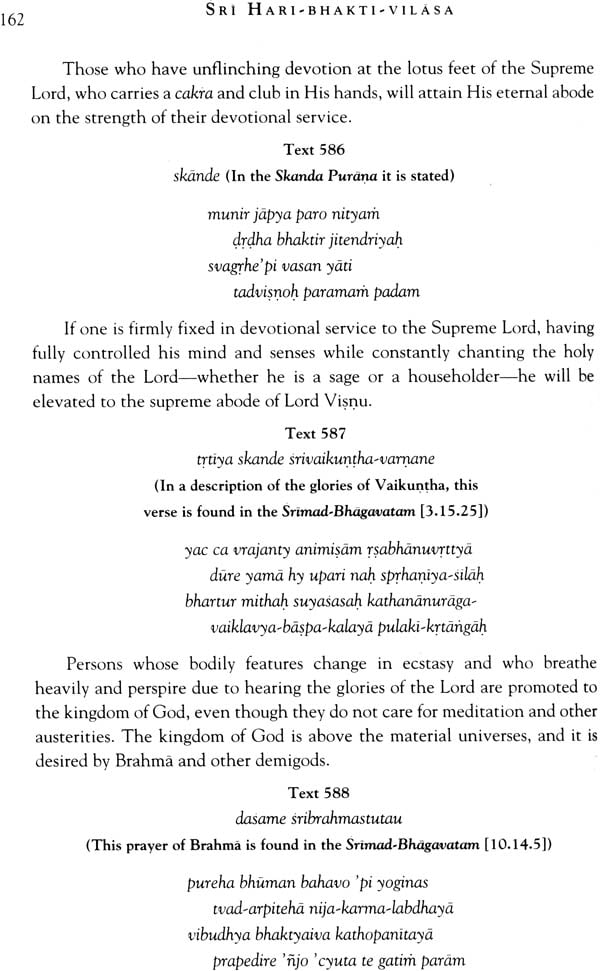
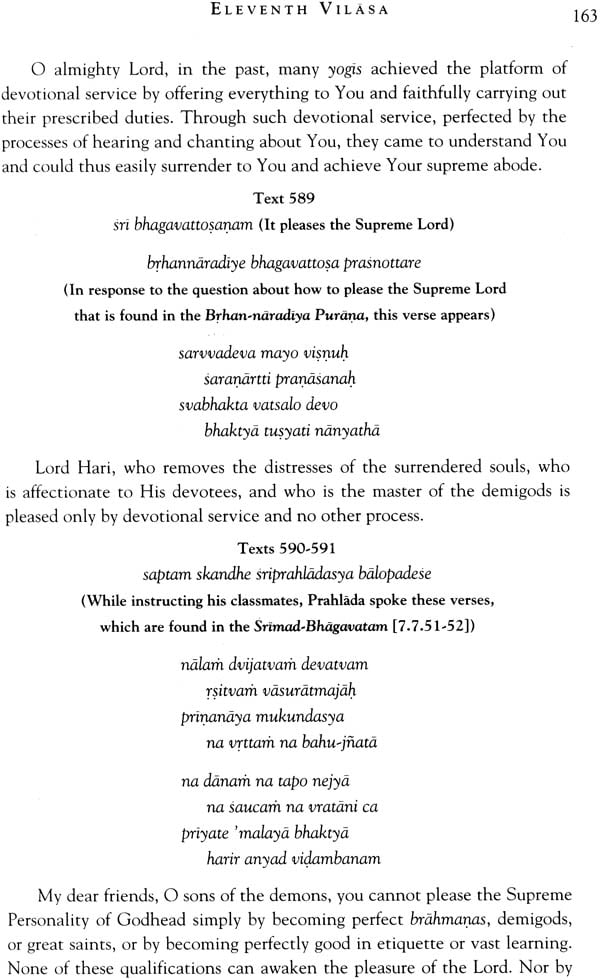
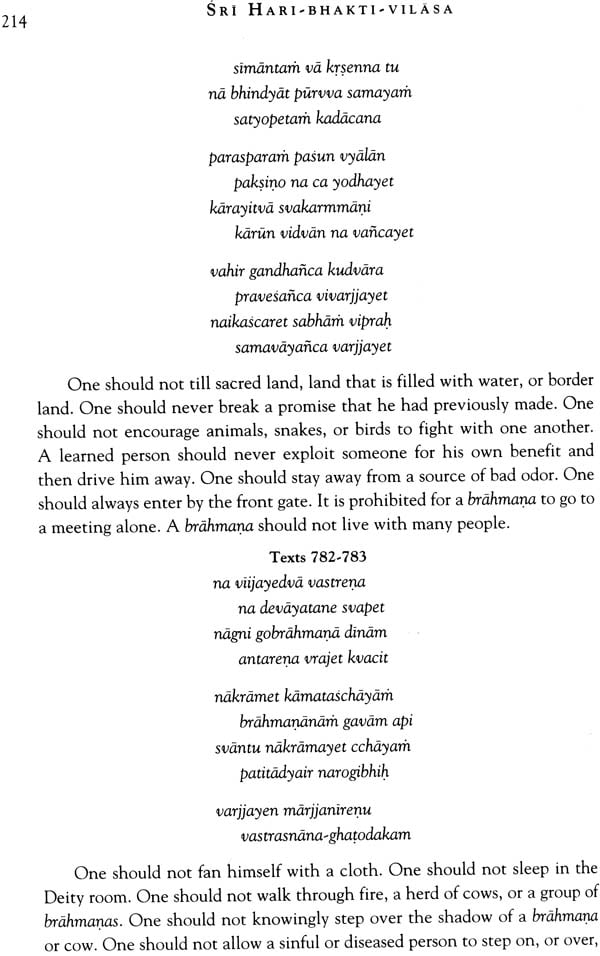
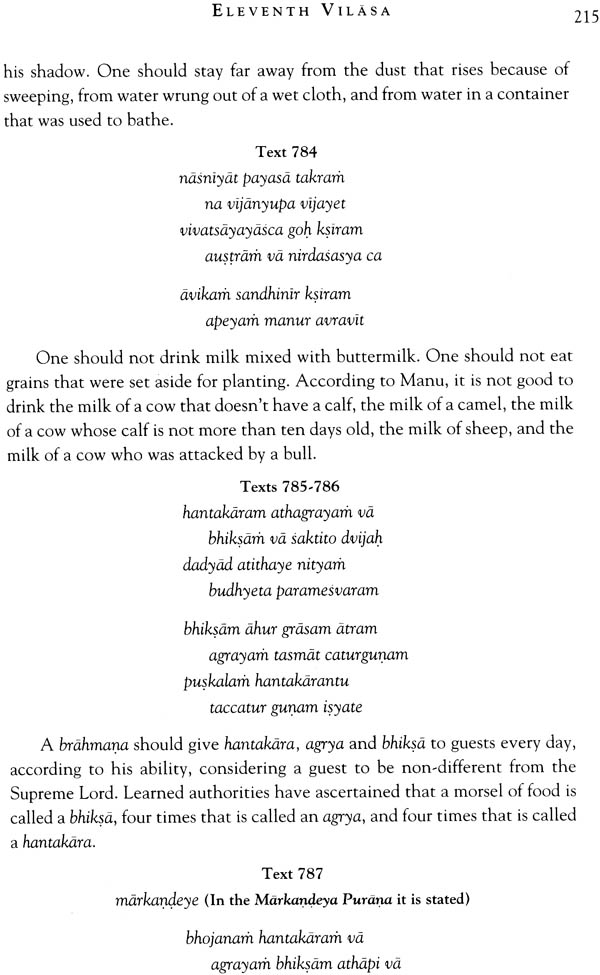
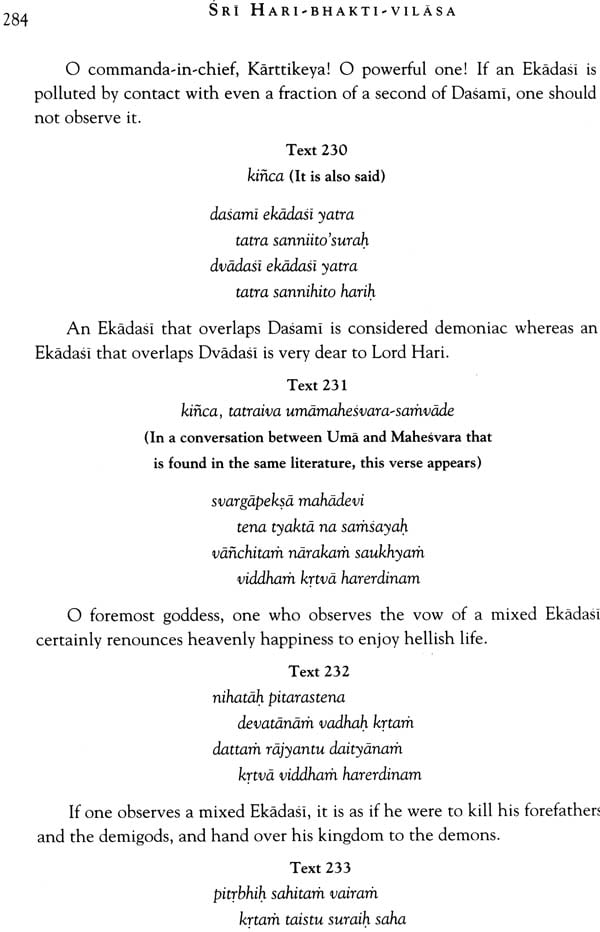
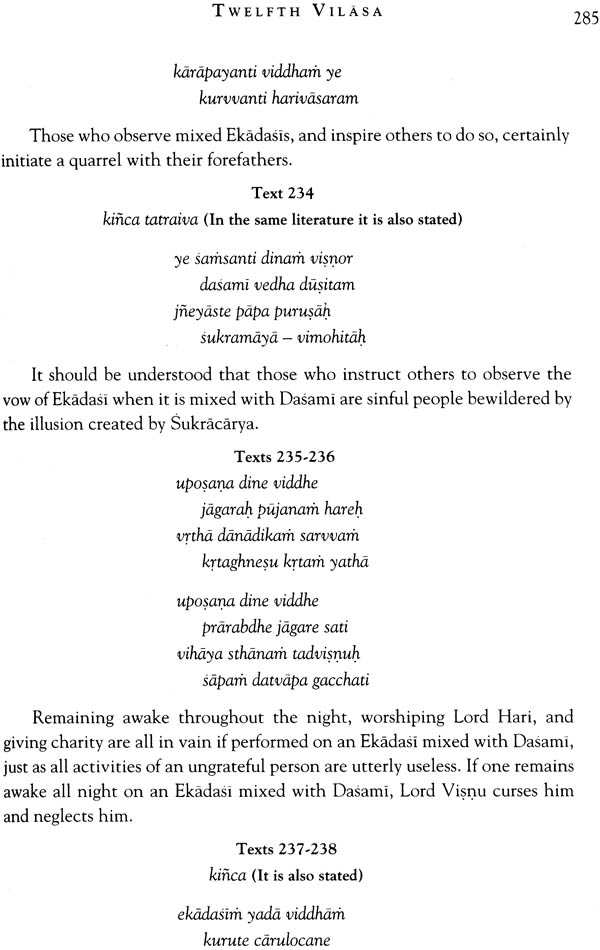
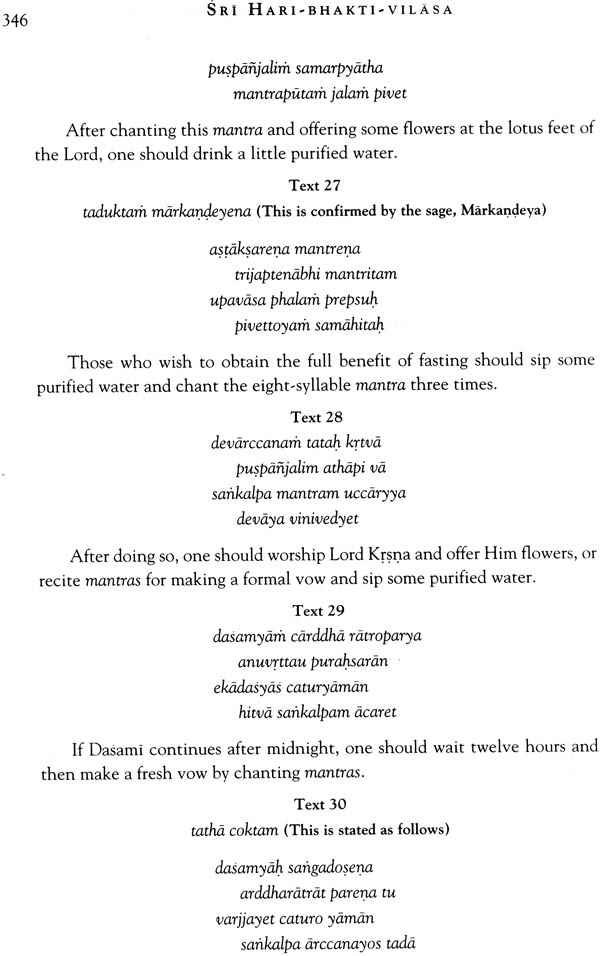
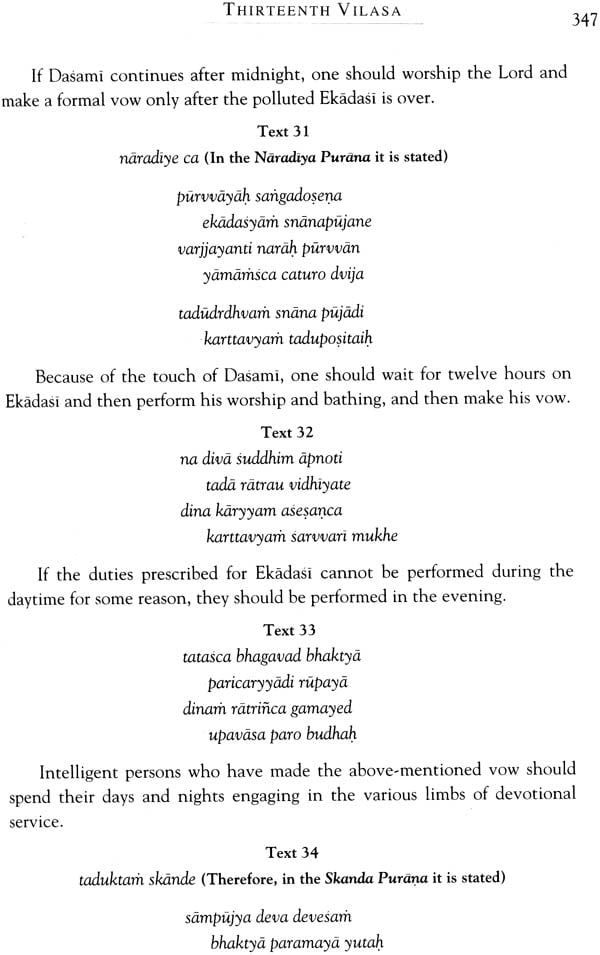
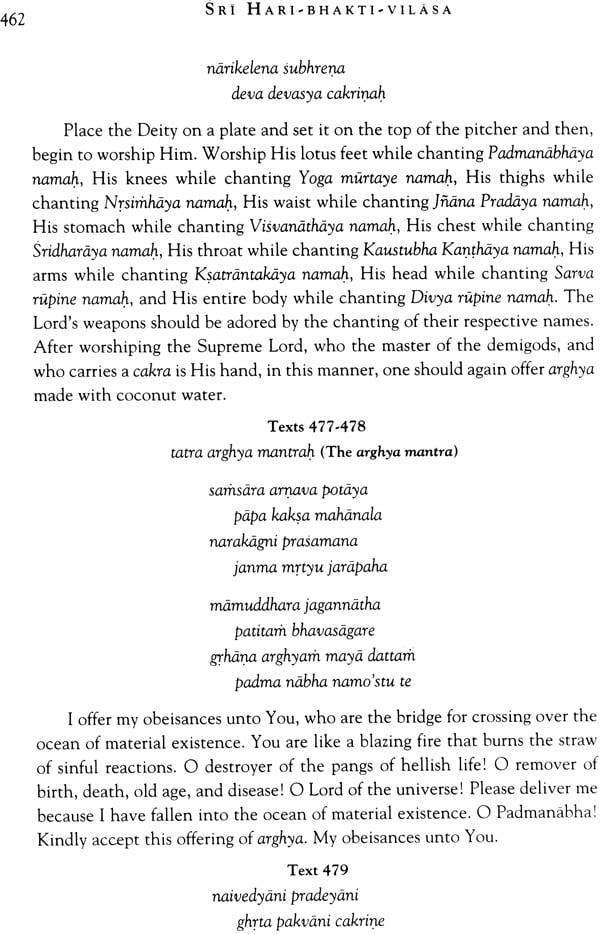
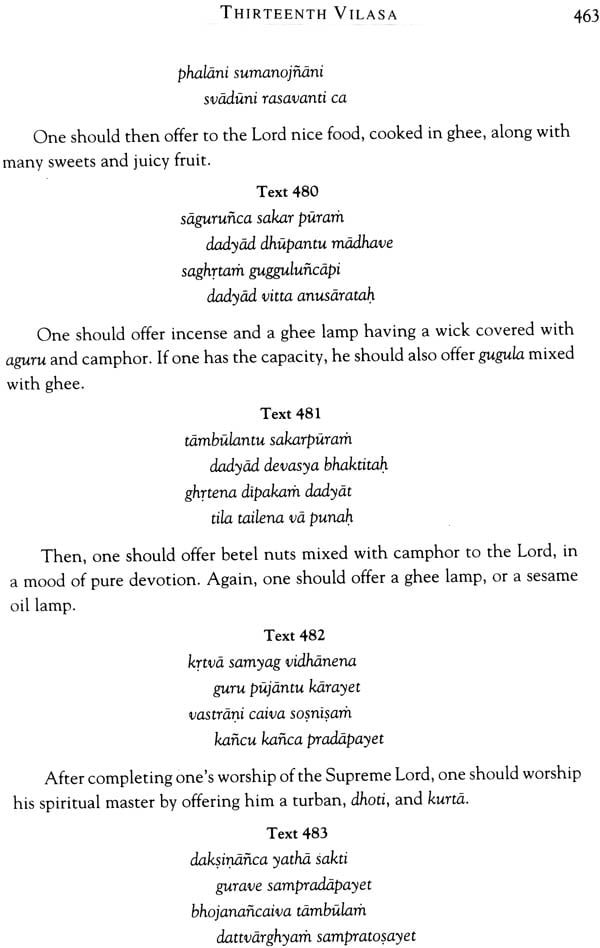
 to all international destinations within 3 to 5 days, fully insured.
to all international destinations within 3 to 5 days, fully insured.




